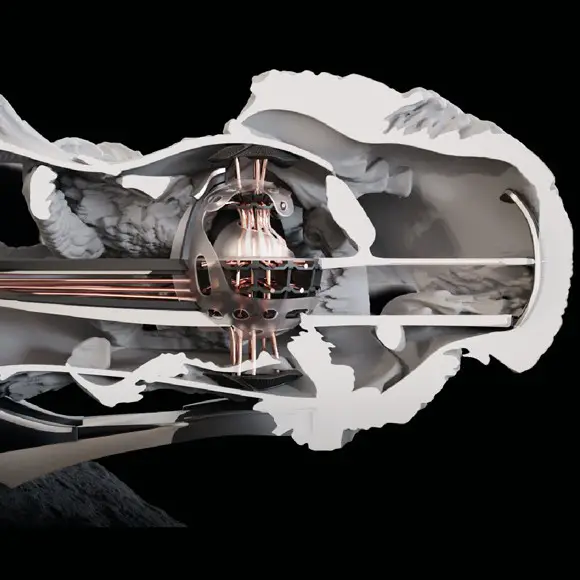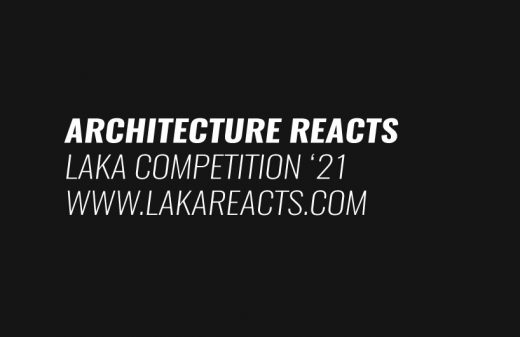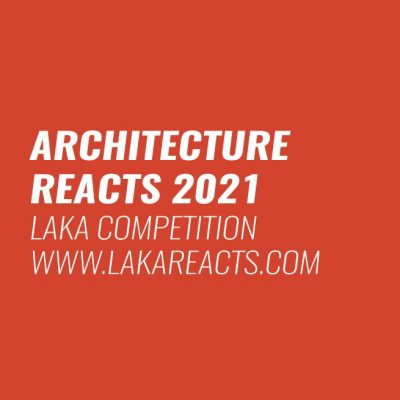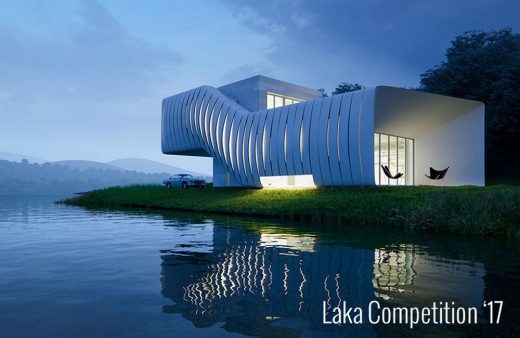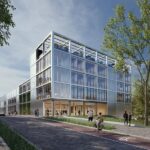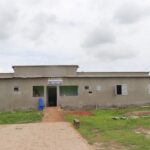Laka Competition 2021, Architecture that Reacts Architecture Contest, News, Jury, Prize, Deadline
Laka Competition 2021 News
International Architectural Contest – Architecture that Reacts
21 Aug 2020
Laka Competition 2021
Laka Competition 2021: Architecture that Reacts News
The subject of the competition is architectural, urban, technological, or product design that is capable of dynamic interaction with its social, natural, or built surroundings. The main focus of the competition is on solutions developed through a process of changes and adjustments.
The winning projects from the previous editions often took advantage of disciplines such as robotics, mechanics, digital fabrication, biodesign and biofabrication, computational design, materials science, bioarchitecture, social sciences, industrial design, mobility, and more. The participants are free to decide the project’s location, scale, size, and program.
Laka Competition 2020 entry – design by Monika Kalinowska & Denys Karandiuk:
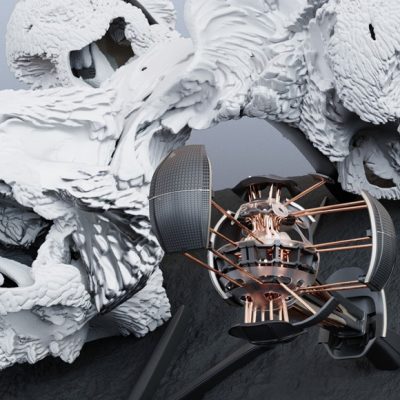
JURY
Jury is presented on the website of the competition. The previous panels have been joined by among others: Nathalie de Vries (Architect, Urban Planner, Co-founder of MVRDV), Hani Rashid (Architect, Designer, Educator, Co-founder of Asymptote, Head of Studio_Hani Rashid), Daan Roosegaarde (artist, innovator, founder of Studio Roosegaarde), Emma van der Leest (biodesigner, product designer, founder of the BlueCity lab), Qun Dang (Architect, Principal Partner at MAD Architects), Maria Aiolova (Architect, Educator, LEED AP, Assoc. AIA, Co-founder of Terreform ONE), Tobias Wallisser, Chris Bosse, Alexander Rieck (Architects, Co-Founders of LAVA Laboratory For Visionary Architecture), Carlo Ratti (Architect, Engineer, Founding Partner of Carlo Ratti Associati, Director of the MIT Senseable City Lab), Paul Clemens Bart, Marvin Bratke (Architects, Co-founders of BART//BRATKE), Alberto T. Estévez (Architect, Educator, Founder of ESARQ/UIC), Camilla Siggaard Andersen (Architect, Urban Innovation Consultant, Educator), Peter Kuczia (architect, initiator and curator of the Design that Educates Awards) and more renowned designers and educators.
SCHEDULE
The submission of designs is available all year round. The competition is divided into phases. The winners are selected each month. You can select the phase you want to join (and join more phases with the same or with different projects). Each phase has its separate panel of juries and the timeline. From each phase, the laureates will be selected and promoted on the channels of the Laka Foundation. The registration fees (specified on the website) support the statutory activity of the Laka Foundation (host, non-profit).
Laka Competition entry – design by Monika Kalinowska & Denys Karandiuk:
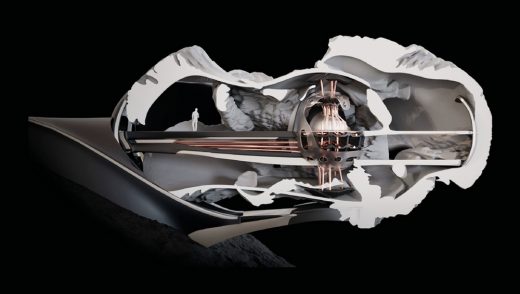
AWARDS
Main prizes and honorable mentions will be selected. The 3 winning entries (main prizes) of each phase will be nominated for the Design that Educates Awards (in the category of Responsive Design), presented on the website of the Laka Competition, mentioned on the social media channels of the Design that Educates Awards, and invited to present their designs during the online meeting with editors of the Laka Perspectives. Laureates of main prizes and honorable mentions will receive the certificates and banners for online promotion. Nominations are an additional channel of access to the awards.
Proposal by Monika Kalinowska & Denys Karandiuk:
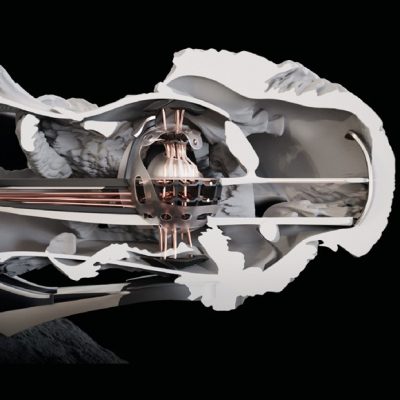
JOIN
Laka invites everyone interested in the mission of the competition to submit their ideas. The participants are free to decide the project’s location, scale, size, and program and are encouraged to look for interdisciplinary solutions. Participants may submit multiple projects; each entry must be registered separately. There is no limit as to the number of participants per team. Individual entries are allowed. Interdisciplinary teams are encouraged to join.
EVALUATION CRITERIA
Entries will be evaluated based on the criteria of (1) overall idea and implementation; (2) an ability to respond to social, economic, or environmental changes; (3) the design’s level of social and environmental engagement; (4) a relationship to a specific social, natural, and built context; (5) the design’s level of flexibility and adaptability; (6) an innovative use of technology and sustainable systems; and (7) the design’s level of self-sufficiency.
Design by Monika Kalinowska & Denys Karandiuk:
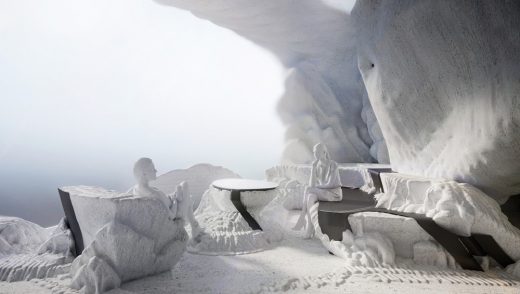
ORGANIZER
The host of the Laka Competitions is Laka Foundation (nonprofit)
Official website of the awards: www.lakareacts.com
Contact the organizer at hello@lakareacts.com
Laka Competition 2021: Architecture that Reacts images / information from Laka
Location: Korea
Laka Competition
Laka Competition 2020: Architecture that Reacts
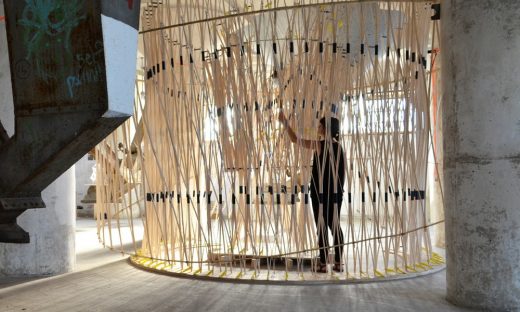
Laka Competition 2018: Architecture that Reacts
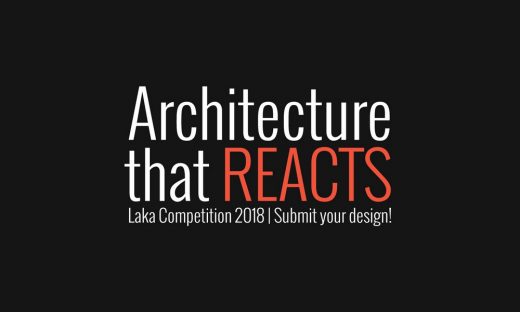
image courtesy of article provider
Laka Competition 2018
Architectural Design
Comments / photos for the Laka Competition 2021: Architecture that Reacts page welcome

